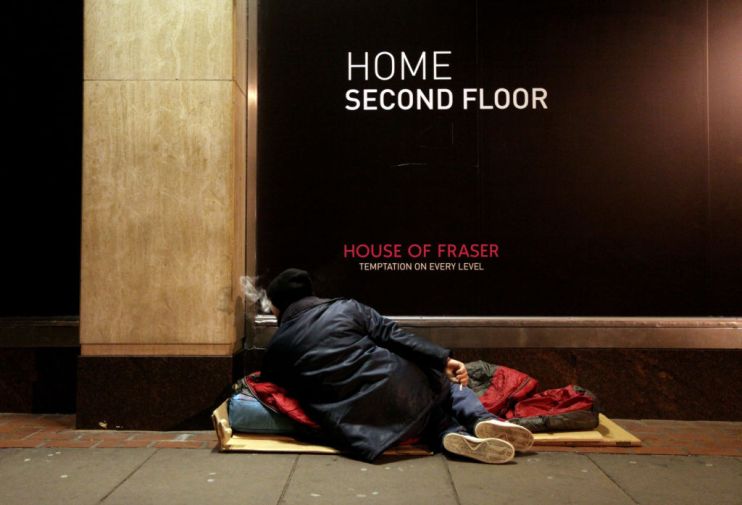How your old laptop could change a life

At a late age I found myself homeless. I was homeless for 15 years.” This statement may sound shocking, but for Ann, this was reality — until she became a member of Thames Reach’s Step-Up project.
The Step-Up project is a free support service helping low-paid Londoners progress into better paid work. As Dominika Milowka, a digital skills support worker at Step-Up, explains: “Our goal is to identify problems that might be preventing people from progressing. These may range from looking presentable for interviews and accessing computers to create their CVs, to bigger mental health issues.”
Like too many Londoners, Ann spent over a decade sleeping on sofas, unable to get a place of her own, despite working.
Since contacting Thames Reach, she now lives independently and is enrolled in two courses: a Level 2 Certificate in Principles of Business Administration, and a Level 2 Information, Advice and Guidance. She also works part-time and volunteers with the charity’s information, advice and guidance service.
Her determination and energy are a true inspiration. But her story also shows how sometimes seemingly small things can make all the difference when someone is trying to turn their life around.
When her laptop stopped working over a year ago, Ann was left trying to pursue her studies through public computers as she could not afford to buy a new one. “I spend most of my days going from one area to the next using public computers and internet. It takes me so long to get assignments done,” she explains.
Scavenging for value
As the first waste and recycling company in London to become accredited by the Living Wage Foundation, Paper Round wanted to help Ann and aid her journey to better paid work.
Our company collects electronic items and refurbishes them at our materials recovery facility. In collaboration with Thames Reach, we have now donated one of these refurbished laptops in the hope that it will help Ann’s quality of life.
Ann’s story showcases the potential impact if we all recycled our electronics responsibly. This is an environmental issue as well as a social one. Electronic waste is one of the fastest growing waste streams in the world, with around 50m tonnes produced every year that is predicted to double by 2050.
According to the UN Environment Programme, up to 90 per cent of the world’s electronic waste, worth nearly £12bn, is illegally traded or dumped in developing countries each year.
This results in significant environmental and social impacts, from open burning to recover rare metals from the devices, through to children being exploited to scavenge old IT equipment.
Someone else’s cast-out
It doesn’t have to be this way. In fact, if done right, recycling of old devices could do a great deal of good. For people like Ann, a laptop is not just a commonplace object sat in a corner at home — it is a great luxury. Someone else’s cast-out that could have ended up on a rubbish tip across the world has enabled her to make the most of the opportunities offered by the Step-Up project and take control of her life.
It’s an outcome that wouldn’t have been possible without a small but important change. With London facing both a homelessness crisis and an environmental emergency, it’s something we should all consider if we want to make a difference — to both people and the planet.
“I have an opportunity to change my life,” says Ann. “This laptop is going to help me do that.”
Bill Swan is managing director of Paper Round, a leading commercial recycling company and pioneer of the circular economy.